Monday Memo: Behold the Radio Unicorn!
By Holland Cooke
Consultant
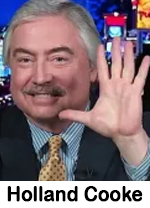 Got young local radio news talent? CONGRATULATIONS, for five reasons:
Got young local radio news talent? CONGRATULATIONS, for five reasons:
1. They’re young, which our 100-year-old medium NEEDS.
2. Streaming and satellite competitors don’t do local.
3. Radio is still #1 in-car. And in-home again, via smart speakers.
4. As listeners wonder “What NEXT?” news has their back.
5. Talent is acquired. Hire attitude, train skills.
Just DOING local news makes you special, especially if your AM/FM competitors don’t. Six tips for taking it to the next level, and making your station more habit forming:
— Make this hour’s newscast sound different than last hour’s. A particularly clever turn-of-phrase can come back to haunt you the second time a listener hears that version. The little voice in their head says, “I already heard that.”
— Lead with the latest. Avoid telling the story in chronological order. Is there some detail that can top this hour’s version? “A third shift of state troopers has joined the search for little Sarah Johnson…”
— Write as though you were telling the listener face-to-face. The police posted: “Anyone who has seen a car matching that description is asked to contact the police.” Rewrite to say, “If you see that car, call the police.”
— Less is more. Long sentences can make it difficult for the listener to follow the story and understand the information. Emulate your network’s writing style. Write for the ear. Avoid using too many adjectives and adverbs.
— But don’t leave out verbs! “The woman’s husband arrested the wounded man taken to the hospital.” Huh?
— Highly recommended: “Writing Broadcast News Shorter, Sharper, Stronger” by Mervin Block (expensive on Amazon, FREE on Google Books).
Time Spent Listening is still the ballgame. Specifically, we want to add occasions of tune-in, which is easier than extending duration-per-occasion. Translation: There is very little we can do to keep someone in a parked car with the key on Accessories.
So be known for knowing. Benefit-laden imaging will earn you the information reputation that keeps listeners coming back again and again, “for a quick update.” And user-friendly copy points will be more effective than the boastful station-centric way many news promos sound.
Holland Cooke (HollandCooke.com) is a consultant working the intersection of broadcasting and the Internet. He is the author of “The Local Radio Advantage: Your 4-Week Tune-In Tune-Up” and “Close Like Crazy: Local Direct Leads, Pitches & Specs That Earned the Benjamins” and “Confidential: Negotiation Checklist for Weekend Talk Radio.” Follow HC on Twitter @HollandCooke and connect on LinkedIn




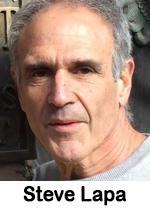 Does anyone care anymore?
Does anyone care anymore?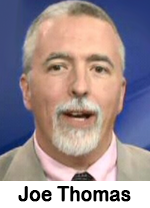 Monticello Media’s WCHV-AM, Charlottesville, Virginia, is acquiring WTON-AM, Staunton, Virginia and two FM translators (W255DS, Harrisonburg at 98.9 and W266BQ, Crozet at 101.1) from Stu-Comm, Inc. for $275,000. Thomas is buying the station via his company Thomas Media LLC. After Monticello Media learned of the deal, it severed its relationship with Thomas. He tells TALKERS magazine, “We are looking forward to bringing local news and conversation back to the valley the same way we did for WCHV. We also hope to have my show back on the air in Charlottesville soon.”
Monticello Media’s WCHV-AM, Charlottesville, Virginia, is acquiring WTON-AM, Staunton, Virginia and two FM translators (W255DS, Harrisonburg at 98.9 and W266BQ, Crozet at 101.1) from Stu-Comm, Inc. for $275,000. Thomas is buying the station via his company Thomas Media LLC. After Monticello Media learned of the deal, it severed its relationship with Thomas. He tells TALKERS magazine, “We are looking forward to bringing local news and conversation back to the valley the same way we did for WCHV. We also hope to have my show back on the air in Charlottesville soon.”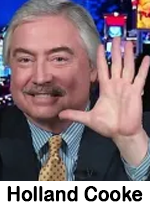 If you’re a news/talk station, don’t assume that you own “news radio” in your market. Imaging is important, but it merely talks-the-talk. You walk-the-walk with local news copy that delivers what solid commercial copy does: benefits. Just doing local news makes you special. But do listeners simply hear a station voice… reading something? Are you merely… accurate? Or do you deliver “take-home pay,” unwrapping the story to tell the listener something useful?
If you’re a news/talk station, don’t assume that you own “news radio” in your market. Imaging is important, but it merely talks-the-talk. You walk-the-walk with local news copy that delivers what solid commercial copy does: benefits. Just doing local news makes you special. But do listeners simply hear a station voice… reading something? Are you merely… accurate? Or do you deliver “take-home pay,” unwrapping the story to tell the listener something useful?
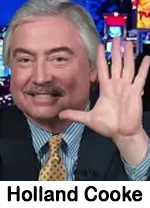 “If you think radio has problems,” consultant Holland Cooke says, “Netflix et al are to television stations what Pandora et al are to music stations. So local news is TV stations’ silver bullet. And – like radio – their need to promote off-air exceeds their promotion budget.” In this week’s column, he outlines tactics for “partnering with a fellow broadcaster who’s also challenged.”
“If you think radio has problems,” consultant Holland Cooke says, “Netflix et al are to television stations what Pandora et al are to music stations. So local news is TV stations’ silver bullet. And – like radio – their need to promote off-air exceeds their promotion budget.” In this week’s column, he outlines tactics for “partnering with a fellow broadcaster who’s also challenged.”  news programming. The company is launching a classical network that will air on five signals in the region as well as online. NEPM president Matt Abramovitz says, “These moves position NEPM to better serve western Massachusetts with journalism and conversations that create connections across our wonderfully diverse communities. That investment in local storytelling will also fuel upcoming multi-platform initiatives to reach new, diverse audiences. At the same time, we are bringing a full-time classical service to the region.”
news programming. The company is launching a classical network that will air on five signals in the region as well as online. NEPM president Matt Abramovitz says, “These moves position NEPM to better serve western Massachusetts with journalism and conversations that create connections across our wonderfully diverse communities. That investment in local storytelling will also fuel upcoming multi-platform initiatives to reach new, diverse audiences. At the same time, we are bringing a full-time classical service to the region.” Local news sponsorship is an opportunity to “fish for whales,” institutional advertisers who can associate with something special. And, well-done, local news sure is special, because:
Local news sponsorship is an opportunity to “fish for whales,” institutional advertisers who can associate with something special. And, well-done, local news sure is special, because: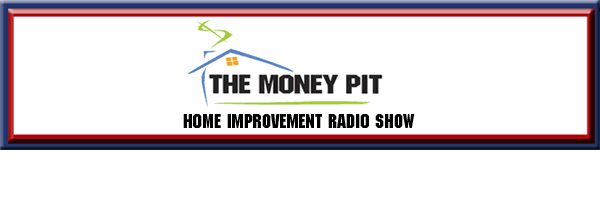
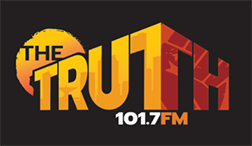 communities with local news, entertainment, and community affairs programming seven days a week. The station was built to uplift the voices in the Black community, sharing their stories, ideas and experiences following the George Floyd incident and protests. The station produces a tapestry of content for fans and advertising opportunities for partners that truly represents the Black experience in our city.” The station was honored with a 2022 Anthem Award (from the creators of the Webby Awards) in the Diversity, Equity, Inclusion and Corporate Responsibility category. Hosts on the station have interviewed notable guests including Vice President Kamala Harris, U.S. Senator Cory Booker, Wisconsin Governor Tony Evers, musicians Jennifer Hudson and Mary J. Blige, and many more.
communities with local news, entertainment, and community affairs programming seven days a week. The station was built to uplift the voices in the Black community, sharing their stories, ideas and experiences following the George Floyd incident and protests. The station produces a tapestry of content for fans and advertising opportunities for partners that truly represents the Black experience in our city.” The station was honored with a 2022 Anthem Award (from the creators of the Webby Awards) in the Diversity, Equity, Inclusion and Corporate Responsibility category. Hosts on the station have interviewed notable guests including Vice President Kamala Harris, U.S. Senator Cory Booker, Wisconsin Governor Tony Evers, musicians Jennifer Hudson and Mary J. Blige, and many more.
 Why? Done right, it makes you special. Because new-tech audio competitors don’t do local news, and with most broadcast radio hours now robotic.
Why? Done right, it makes you special. Because new-tech audio competitors don’t do local news, and with most broadcast radio hours now robotic.